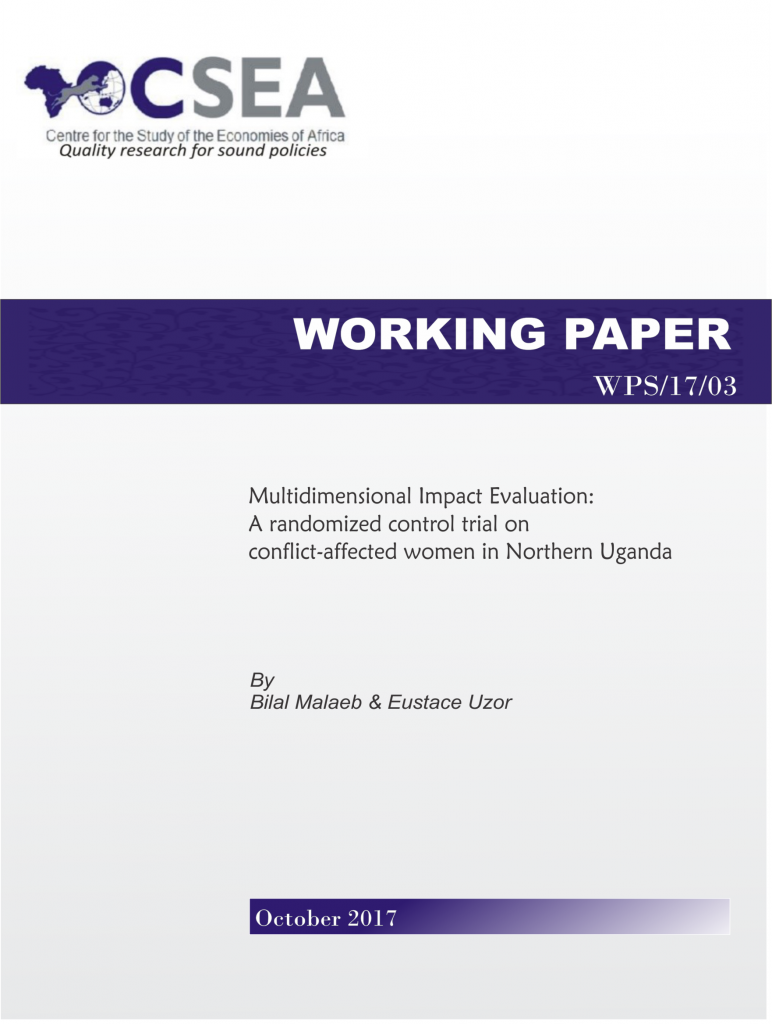Publications

December 14, 2017
Multidimensional Impact Evaluation:
Ending (extreme) poverty in all of its forms everywhere around the world continues to dominate the International Development Agenda (UN 2015).
However, while poverty is declining in much of the developing world, data from the World Development Report (WDR) Conflict, Security, and Development reveal that fragile and conflict-affected states are lagging behind. The report points out that ‘Poverty rates are 20 percentage points higher in countries affected by repeated cycles of violence over the last three decades. Indeed, with the worlds extreme poor over represented in fragile and conflict-affected ,some authors argue that violent conflict is development in reverse
